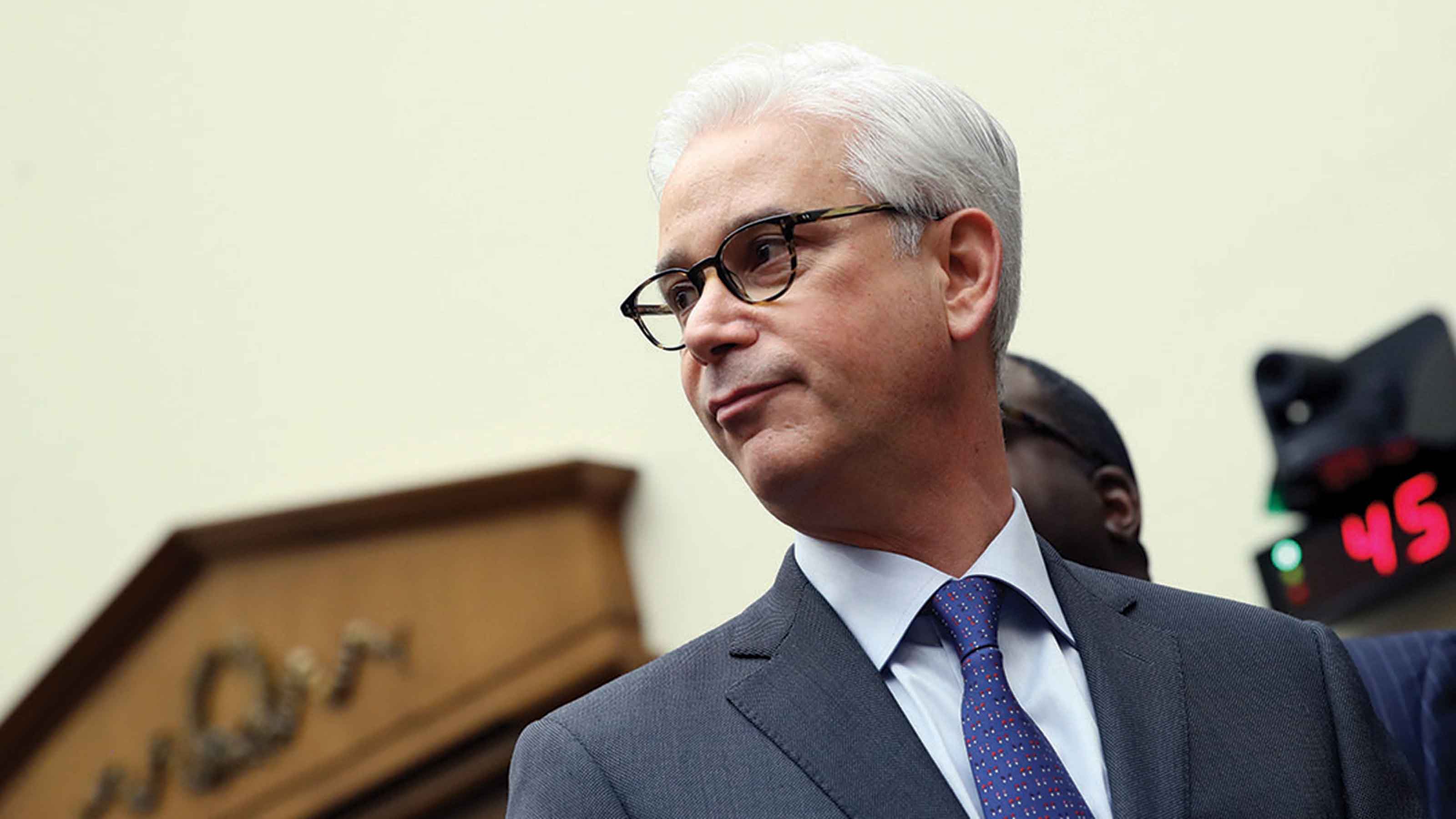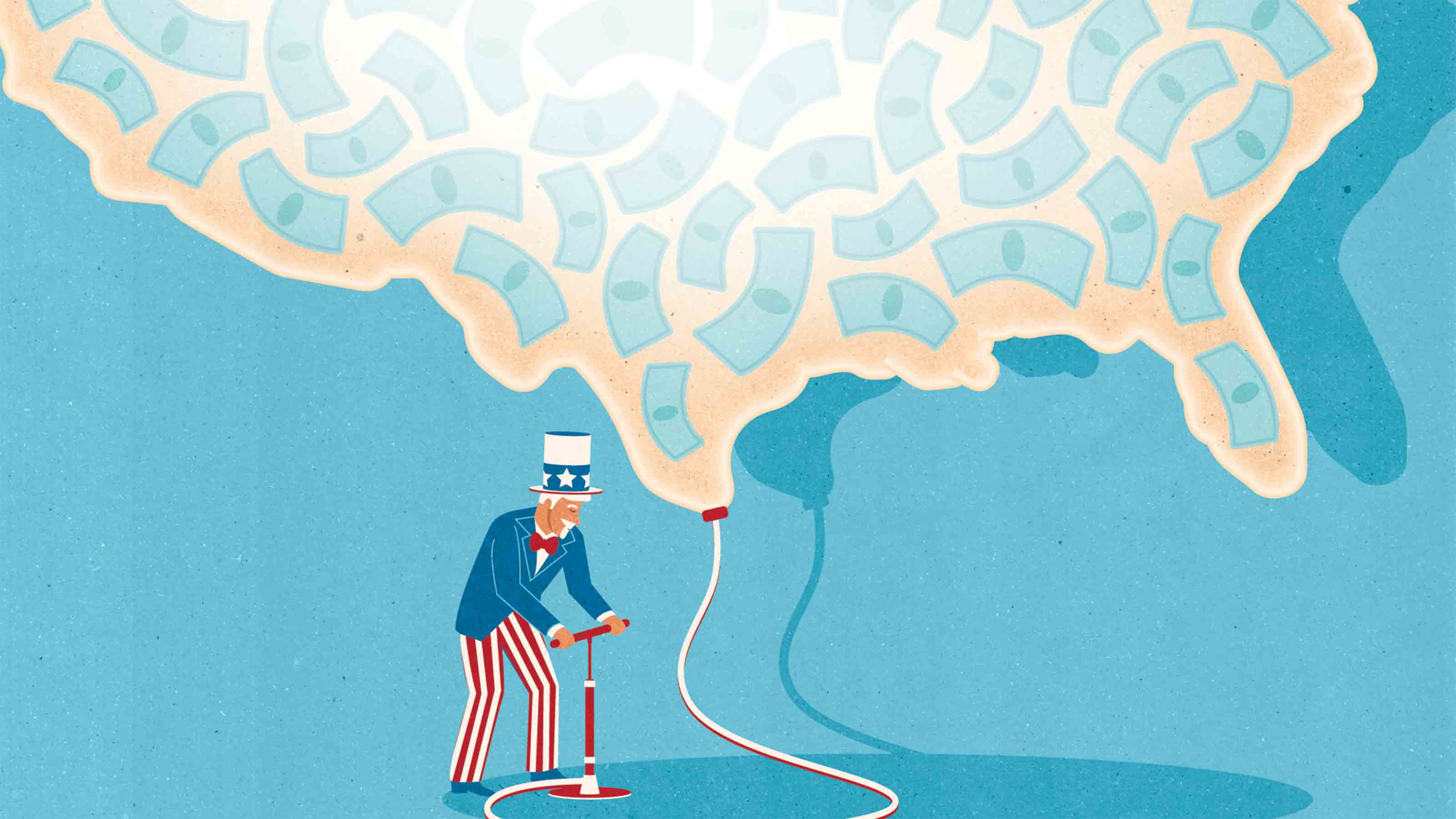Jobs and Hiring Outlook, 2016
Tech and health care continue to lead the fields where jobs go wanting. Employers who need to fill those slots will have to pick up their game.

Profit and prosper with the best of Kiplinger's advice on investing, taxes, retirement, personal finance and much more. Delivered daily. Enter your email in the box and click Sign Me Up.
You are now subscribed
Your newsletter sign-up was successful
Want to add more newsletters?

Delivered daily
Kiplinger Today
Profit and prosper with the best of Kiplinger's advice on investing, taxes, retirement, personal finance and much more delivered daily. Smart money moves start here.

Sent five days a week
Kiplinger A Step Ahead
Get practical help to make better financial decisions in your everyday life, from spending to savings on top deals.

Delivered daily
Kiplinger Closing Bell
Get today's biggest financial and investing headlines delivered to your inbox every day the U.S. stock market is open.

Sent twice a week
Kiplinger Adviser Intel
Financial pros across the country share best practices and fresh tactics to preserve and grow your wealth.

Delivered weekly
Kiplinger Tax Tips
Trim your federal and state tax bills with practical tax-planning and tax-cutting strategies.

Sent twice a week
Kiplinger Retirement Tips
Your twice-a-week guide to planning and enjoying a financially secure and richly rewarding retirement

Sent bimonthly.
Kiplinger Adviser Angle
Insights for advisers, wealth managers and other financial professionals.

Sent twice a week
Kiplinger Investing Weekly
Your twice-a-week roundup of promising stocks, funds, companies and industries you should consider, ones you should avoid, and why.

Sent weekly for six weeks
Kiplinger Invest for Retirement
Your step-by-step six-part series on how to invest for retirement, from devising a successful strategy to exactly which investments to choose.
As the labor market continues to tighten, with employers filling an additional 211,000 positions in November and more job openings expected in 2016, it’s getting harder for firms to find qualified workers.
Look for payrolls to expand further next year by 190,000 jobs per month on average, versus 2015’s 209,000 per month. The slight downshift will come as the jobless rate keeps on falling--to 4.6% as 2016 ends. That’s close to what economists consider to be full employment, though the rate is actually near 10% when the discouraged and underemployed are counted.
The strong job market will pressure wages as more and more employers boost pay to lure workers. We expect wages to go up 2.5% on average next year, compared with 2.2% this year. In 2017, as the economy continues to gain steam, they’ll rise 2.8%.
From just $107.88 $24.99 for Kiplinger Personal Finance
Become a smarter, better informed investor. Subscribe from just $107.88 $24.99, plus get up to 4 Special Issues

Sign up for Kiplinger’s Free Newsletters
Profit and prosper with the best of expert advice on investing, taxes, retirement, personal finance and more - straight to your e-mail.
Profit and prosper with the best of expert advice - straight to your e-mail.
Among the fastest-growing jobs: In tech, developers of applications and systems software, database administrators, cybersecurity experts and all manner of artificial intelligence specialists.
In health care: physician assistants and nurse-practitioners, in addition to doctors, pharmacists and dentists. Also, respiratory therapists, cardio and radiological technicians and similar jobs, which pay around $50,000 or more a year with just a two-year associate degree.
Other fast-growing fields include transportation, where air traffic controllers and truckers remain in acute demand. Financial services, where financial planners are needed to serve retirees, will also see job growth, along with primary education, which lacks enough teachers.
But some jobs will stay in a sustained decline. Printing press operators, for example, whose ranks are being depleted by the digital age. In fact, the outlook for factory workers is gloomy across the board. Those jobs are being replaced by increased automation or are being shifted abroad.
What firms can do
Helpful ways to find and keep good workers: Recruit in adjacent industries for people with skills that can be adapted to your needs with adequate training. Establish internships and apprentice programs to tap younger candidates. Welcome back former employees, who may be more than happy to return. Many companies are reversing policies against taking back folks who flew the coop.
Don’t overlook veterans. And be open to hiring former felons, giving them a second chance. You can earn a tax credit of up to $9,600 per veteran or ex-con hired. Cultivate a reputation as a great place to work, which is important to millennials and others. Thank job applicants for their interest -- they’ll think well of you for it.
Consider expanding your referral bonus program to spouses, ex-workers, etc. Workers who come in via referral are typically of higher quality and more familiar with your business. Provide solid career advancement opportunities through mentoring and continuing education. They’ll entice star workers to stick with your company.
Profit and prosper with the best of Kiplinger's advice on investing, taxes, retirement, personal finance and much more. Delivered daily. Enter your email in the box and click Sign Me Up.

David is both staff economist and reporter for The Kiplinger Letter, overseeing Kiplinger forecasts for the U.S. and world economies. Previously, he was senior principal economist in the Center for Forecasting and Modeling at IHS/GlobalInsight, and an economist in the Chief Economist's Office of the U.S. Department of Commerce. David has co-written weekly reports on economic conditions since 1992, and has forecasted GDP and its components since 1995, beating the Blue Chip Indicators forecasts two-thirds of the time. David is a Certified Business Economist as recognized by the National Association for Business Economics. He has two master's degrees and is ABD in economics from the University of North Carolina at Chapel Hill.
-
 How Much It Costs to Host a Super Bowl Party in 2026
How Much It Costs to Host a Super Bowl Party in 2026Hosting a Super Bowl party in 2026 could cost you. Here's a breakdown of food, drink and entertainment costs — plus ways to save.
-
 3 Reasons to Use a 5-Year CD As You Approach Retirement
3 Reasons to Use a 5-Year CD As You Approach RetirementA five-year CD can help you reach other milestones as you approach retirement.
-
 Your Adult Kids Are Doing Fine. Is It Time To Spend Some of Their Inheritance?
Your Adult Kids Are Doing Fine. Is It Time To Spend Some of Their Inheritance?If your kids are successful, do they need an inheritance? Ask yourself these four questions before passing down another dollar.
-
 Executives Are Getting More Cash Bonuses. Here’s How to Avoid Spending It All.
Executives Are Getting More Cash Bonuses. Here’s How to Avoid Spending It All.Business Executives Looking to keep key employees, companies are handing out more cash bonuses. When deciding the best use of this money, ask yourself, “What matters most to my financial future?”
-
 The Benefits of Serving on a Board in Retirement
The Benefits of Serving on a Board in RetirementBusiness Executives Landing a board seat for a nonprofit or a corporation is a great way to utilize the skills you learned during your career while doing something that's fulfilling.
-
 Don't Count on a Bonus or Recapturing Last Year's Pay Cut – Budget Around It Instead
Don't Count on a Bonus or Recapturing Last Year's Pay Cut – Budget Around It InsteadBusiness Executives If you are worried that your executive compensation may not meet your expectations in 2021, it’s best to prepare for the worst now. Here’s how.
-
 Stephanie Creary: Making the Case for Diversity on Corporate Boards
Stephanie Creary: Making the Case for Diversity on Corporate BoardsBusiness Costs & Regulation Adding underrepresented voices can improve a company’s bottom line.
-
 Federal Debt: A Heavy Load
Federal Debt: A Heavy LoadEconomic Forecasts The debt continues to grow, but record-low interest rates could ease the long-term damage.
-
 How We Lose When We Overlook Black Talent
How We Lose When We Overlook Black TalentBusiness Executives Comments from Wells Fargo CEO Charles Scharf (pictured) reflect a culture that tramples on clients’ trust and limits opportunities for people of color.
-
 How the Fed's Moves Affect You
How the Fed's Moves Affect YouEconomic Forecasts It’s pumping trillions of dollars into the economy and keeping rates near zero. Savers are sunk, but borrowers get a boost.
-
 7 CARES Act Tax Breaks for Businesses
7 CARES Act Tax Breaks for BusinessesTax Breaks No matter what business you're in, there's probably at least one CARES Act tax breaks that can improve your bottom line and help you stay afloat.